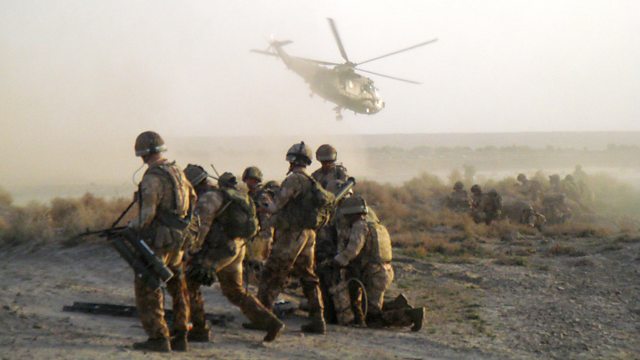Stolen Honour
Defence correspondent Jonathan Beale asks whether medals for bravery encourage recklessness within the military. With modern warfare changing, are medals fit for purpose?
In November 2020, former army Sergeant Deacon Cutterham sold his medal collection to a private collector for 拢140,000. Having served for 19 years, completing tours in Iraq and Afghanistan, he said the sale of his medal collection, including a valuable Conspicuous Gallantry Cross, would help support his family.
But there's a problem. Members of Cutterham's Afghanistan unit say the act of bravery that won him his biggest prize didn't happen.
Cutterham's medal was awarded in 2011 after he picked up and hurled away a Taliban grenade while on patrol in Helmand, saving the lives of eight men. His comrades say there was a grenade - but it came from Cutterham's own equipment belt.
If their accusations are true, why would a soldier be so desperate for a medal?
In this programme, defence correspondent Jonathan Beale explores the culture of medals within the military. He assesses their significance and questions whether they encourage violence and recklessness as soldiers fight for recognition in the field of combat. There are some who argue that gallantry medals actually endanger lives and undermine the process of peacekeeping.
We'll hear from critics of the medals system who argue that it's entirely outdated, far better suited to the wars of the 20th century than the subtle counter-insurgency campaigns of today. They say medals are awarded for "kinetic activity", by which the forces mean violent exchanges. Quite simply, you don't win medals for keeping things calm.
Producer: Sasha Edye-Linder
Executive Producer: Max O'Brien
A Novel production for 大象传媒 Radio 4
Last on
Broadcasts
- Tue 23 Nov 2021 16:00大象传媒 Radio 4
- Thu 25 Nov 2021 20:30大象传媒 Radio 4

